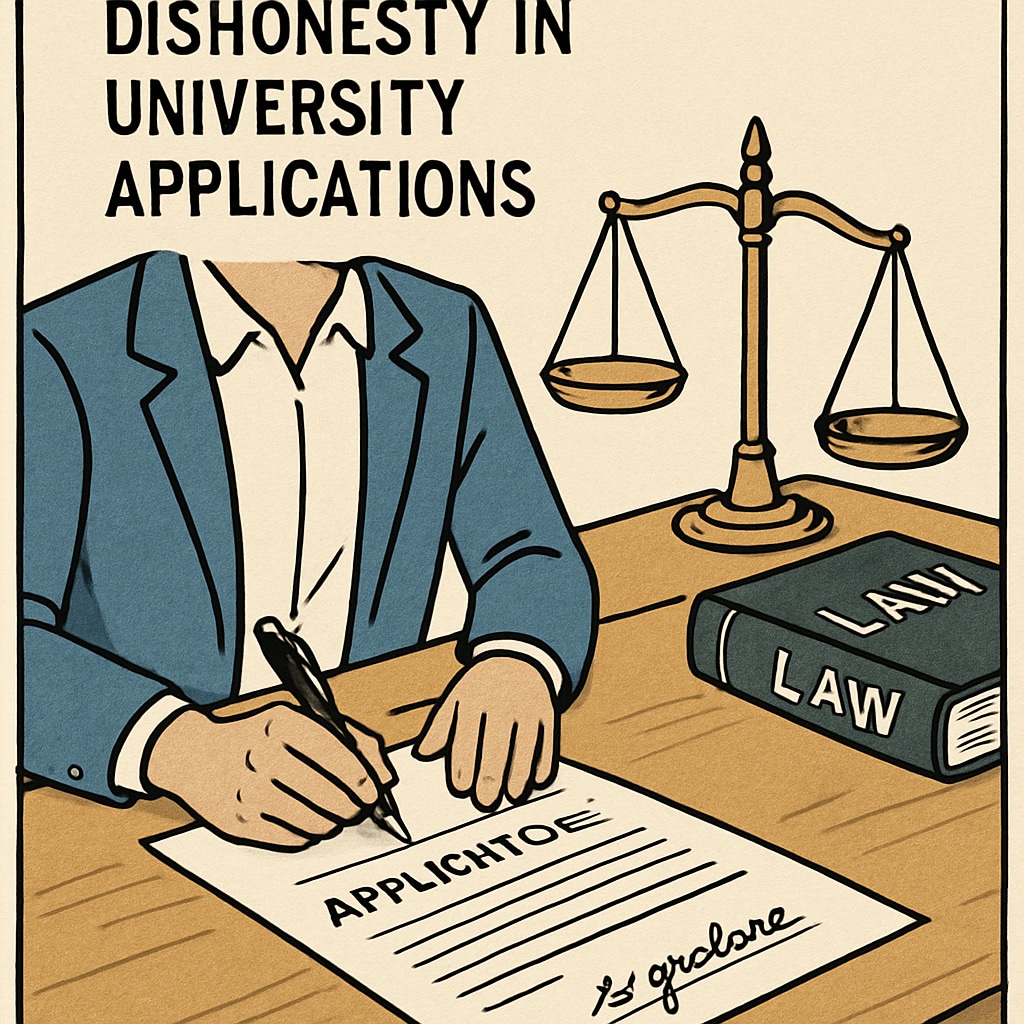During the university admissions process, the temptation to exaggerate accomplishments or falsify information can be strong for some applicants. However, engaging in such dishonesty carries significant risks. Submitting false information in applications can result in revoked admissions, irreparable damage to one’s academic reputation, and even legal implications. This article explores these potential consequences and offers practical advice for maintaining integrity throughout the application process.
The Immediate Consequences of Dishonesty in Applications
One of the most immediate risks of providing false information in a university application is the potential for admission offers to be rescinded. Universities often have strict policies regarding academic integrity. If inconsistencies are discovered—whether during the application review process or even years after enrollment—institutions may revoke the offer of admission or expel the student. For example, high-profile cases have surfaced where students were dismissed after falsifying grades or extracurricular achievements.
In addition, dishonesty can tarnish a student’s reputation among educators, peers, and future employers. Academic institutions often share records, and a history of dishonesty can follow an individual throughout their career. Trust, once broken, is hard to rebuild.

Long-Term Repercussions: Beyond the Classroom
The risks of dishonesty extend far beyond revoked admissions. A tarnished academic record can limit future opportunities, such as transferring to another institution, applying for graduate programs, or securing scholarships. Moreover, the ethical implications of dishonesty can have a lasting impact on personal integrity and self-esteem.
Beyond academic consequences, providing false information may also have legal implications. For instance, if falsified documents or fraudulent claims are involved, students and their families could face legal actions. Some countries have laws that categorize such behavior as fraud, which could lead to fines or other legal penalties.

Why Integrity Matters in University Applications
Maintaining honesty in university applications is not just a matter of avoiding penalties; it is also about building a foundation of trust and authenticity. Universities value students who demonstrate integrity, as these traits are crucial for academic and professional success. Honesty in the application process reflects a commitment to ethical principles and a willingness to grow through genuine effort.
Furthermore, applying with integrity can reduce stress. Students who provide accurate information can approach the admissions process with confidence, knowing that their achievements and abilities will be evaluated fairly.
Practical Tips for Honest Applications
To ensure an ethical and transparent application process, students, parents, and educators can follow these guidelines:
- Be Accurate: Verify all academic records, test scores, and extracurricular details before submitting the application. Avoid exaggerating achievements or fabricating experiences.
- Seek Guidance: Consult with teachers, counselors, or mentors to ensure that application materials are truthful and well-prepared.
- Respond Honestly to Setbacks: If there are gaps or challenges in your academic history, address them honestly and explain how you have worked to overcome them.
- Proofread Thoroughly: Review applications multiple times to ensure all information is accurate and error-free.
- Focus on Your Strengths: Highlight genuine achievements and qualities that demonstrate your potential without resorting to dishonesty.
By adhering to these practices, applicants can uphold their integrity while presenting a compelling case to admissions officers.
Conclusion: Honesty Is the Best Policy
Dishonesty in university applications may seem like a shortcut to success, but the risks far outweigh the potential benefits. From revoked admissions to long-term reputational harm, the consequences of deception can be severe and far-reaching. By committing to honesty and integrity, students not only safeguard their future but also gain the confidence that comes from knowing their achievements are genuine.
Ultimately, integrity is a lifelong value that extends beyond the admissions process. By embracing honesty, students can build a foundation for academic success, professional growth, and personal fulfillment.
Readability guidance: This article uses short paragraphs and lists to present key points clearly. Transition words like “however,” “in addition,” and “for example” ensure smooth readability. The active voice is prioritized to maintain engagement.


